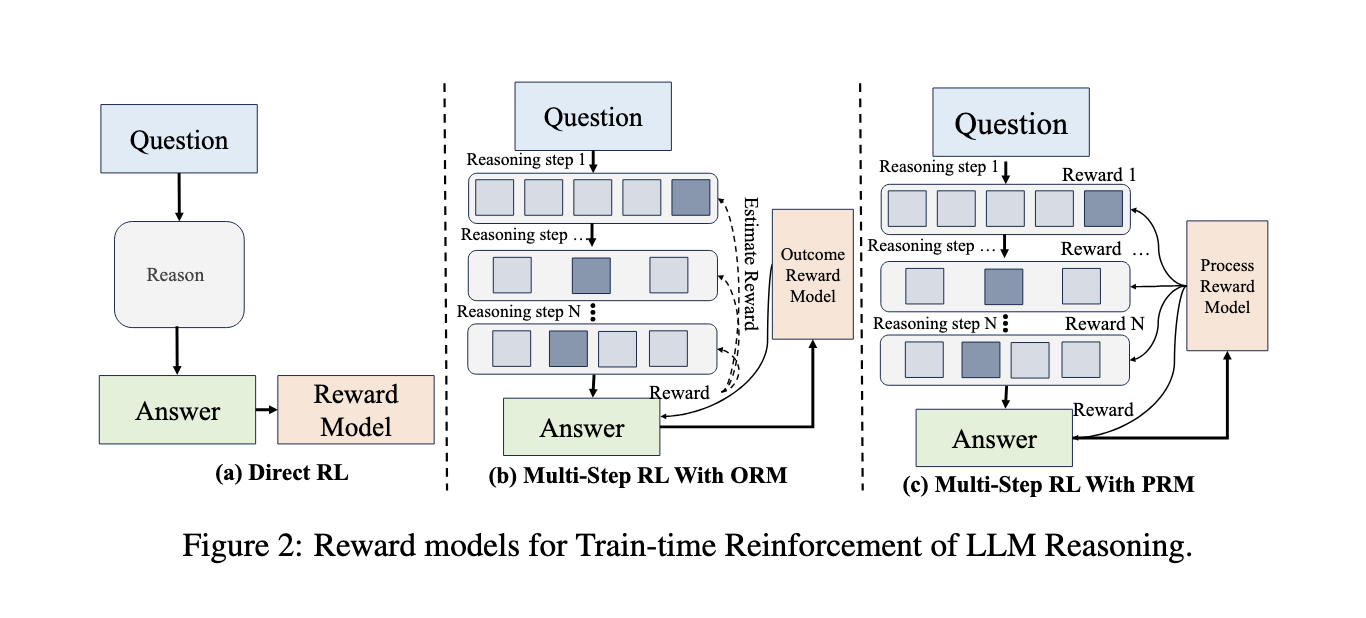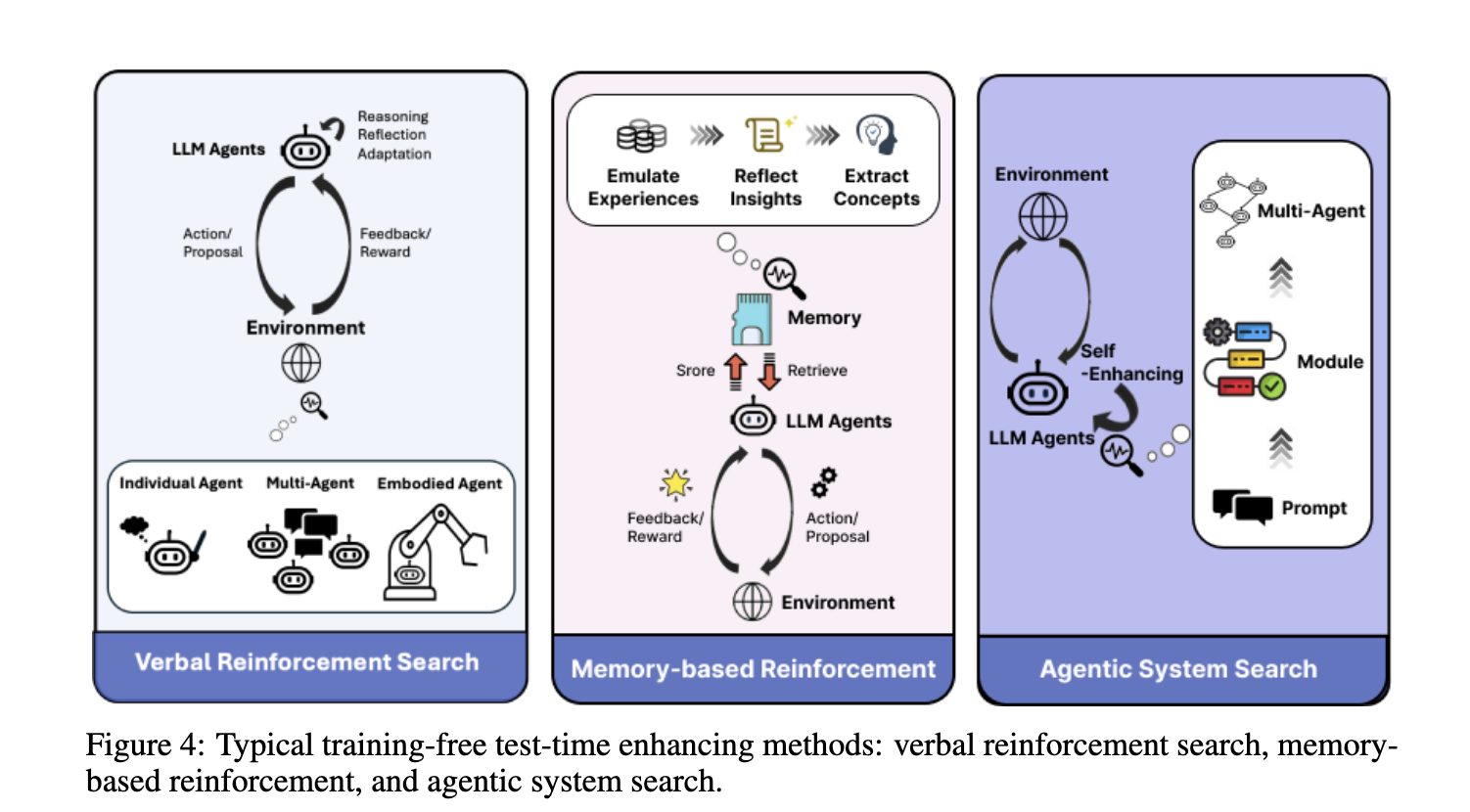Scaling up large language models (LLMs) and their training data has now opened up emerging capabilities that allow these models to perform highly structured reasoning, logical deductions, and abstract thinking. These are not incremental improvements over previous tools, but rather point the way toward achieving Artificial General Intelligence (AGI).
Training LLMs to reason well is one of the biggest challenges in creating them. The approaches developed so far cannot master multi-step problems or those whose solution must be coherent and logical. A primary cause is the use of human-annotated training data, which is expensive and inherently limited. Without enough discussed examples, these models fail to generalize across domains. This limitation presents a significant barrier to exploiting LLMs for more complex real-world problems that require advanced reasoning.
The above methods have found partial solutions to this problem. Researchers have explored supervised tuning, reinforcement learning from human feedback (RLHF), and stimulation techniques such as chain of thought. While these techniques improve the capabilities of LLMs, they still rely heavily on quality data sets and significant computational resources. Adjusting with reasoning examples or integrating step-by-step problem-solving trajectories has been successful; However, the approaches remain computationally intensive and are generally not scalable to massive applications. Addressing these challenges, researchers began to focus more on methods for automated data construction and reinforcement learning frameworks that require minimal human effort but maximize reasoning accuracy.
Researchers from Tsinghua University, Emory University, and HKUST introduced a reinforcement learning paradigm to address the challenges of training LLMs for reasoning tasks. Their approach uses process reward models (PRM) to guide intermediate steps within the reasoning process, significantly improving logical coherence and task performance. Using a combination of automated annotations with Monte Carlo simulations, the researchers automatically generated high-quality reasoning data that does not rely on manual intervention. This innovative methodology eliminates reliance on human annotations on data quality but allows models to perform advanced reasoning through iterative learning cycles. The reinforcement learning method encompasses a variety of components, including PRM-guided automated reasoning trajectories and test-time reasoning.
PRMs provide step-level rewards focused on intermediate steps rather than end results. Detailed guidance ensures that the model can learn incrementally and refine its understanding during training. Scaling in test time further improves reasoning capabilities by dedicating more computational resources to deliberate thinking during inference. Techniques such as Monte Carlo tree search (MCTS) and self-refinement loops are critical to this process, allowing models to simulate and evaluate multiple reasoning paths efficiently. The performance results show that these methods work well.

Models trained using this boosted paradigm show significant improvement on reasoning benchmarks. The OpenAI o1 series, one of the most prominent implementations of such techniques, achieves an 83.3% success rate in competitive programming tasks by leveraging structured reasoning and logical deduction. The o1 model has also demonstrated PhD level performance in mathematics, physics and biology, achieving gold medal levels at the International Mathematics Olympiad. Systematic evaluations reveal that integrating step-level reasoning processes improves accuracy by 150% compared to previous models. These results emphasize the model's ability to decompose complex problems, synthesize interdisciplinary knowledge, and maintain coherence in long-term tasks.
The study shows the promising prospect that LLMs can realize once they are equipped with advanced reinforcement learning methods and scaling strategies at the time of testing. The cases of data annotation and reduction of computational resources culminate in new possibilities for reasoning-focused ai systems. This work improves the state of LLMs and establishes a foundation for future exploration in creating models to handle highly complex tasks with minimal human intervention.

In summary, the research points to the transformative force of combining reinforcement learning and extending test time in LLM construction. By addressing the problems associated with traditional training methods and deploying novel strategies of innovative design and application, such a model shows great promise as an effective building of reasoning power. The methods presented by authors from Tsinghua University, Emory University and HKUST are a huge step in achieving the desired goal of well-established ai and human-like reasoning systems.
Verify he Paper. All credit for this research goes to the researchers of this project. Also, don't forget to follow us on <a target="_blank" href="https://x.com/intent/follow?screen_name=marktechpost” target=”_blank” rel=”noreferrer noopener”>twitter and join our Telegram channel and LinkedIn Grabove. Don't forget to join our SubReddit over 65,000 ml.
Recommend open source platform: Parlant is a framework that transforms the way ai agents make decisions in customer-facing scenarios. (Promoted)
Nikhil is an internal consultant at Marktechpost. He is pursuing an integrated double degree in Materials at the Indian Institute of technology Kharagpur. Nikhil is an ai/ML enthusiast who is always researching applications in fields like biomaterials and biomedical science. With a strong background in materials science, he is exploring new advances and creating opportunities to contribute.
 NEWSLETTER
NEWSLETTER





